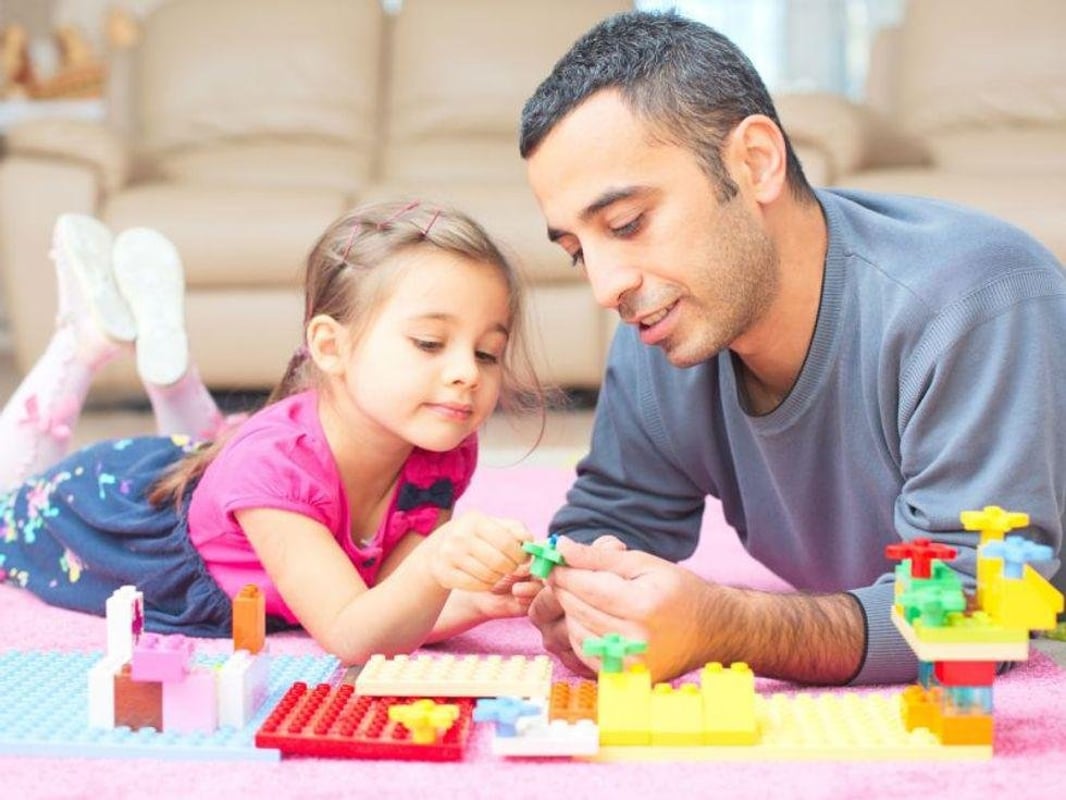Authoritative Parenting: What It Is, Techniques & Discipline

TUESDAY, May 30, 2023 (HealthDay News) -- Children’s personalities and moods can be as diverse as the cosmos, so figuring out the best parenting style can be challenging.
To help, experts here take a deep dive into authoritative parenting, including what it’s like, examples of authoritative parenting style, its disciplinary strategies and how it compares to authoritarian parenting.
What is authoritative parenting?
Authoritative parenting is a supportive and nurturing style of parenting that still includes firm boundary-setting, according to the American Psychological Association. Parents use two-way communication and calm reasoning to help their children understand the rules. Although they take input from their child, parents still have the final say.
The Cleveland Clinic notes that authoritative parenting combines high expectations of following the rules with high levels of affection, positivity and encouragement.
“The balance between affection and high expectation creates a parent who typically displays an even temperament, capable of being flexible when appropriate,” explained Jeff Jack, a licensed professional clinical counselor at Westside Behavioral Health in Westlake, Ohio.
What is the authoritative parenting style like?
StatPearls states that authoritative parents use several strategies, including:
- Giving children clear guidelines
- Explaining why rules are in place
- Taking input from children about their wants, needs and feelings
- Engaging in frequent communication
Structure, gentleness and praise are core principles of authoritative parenting, says the Cleveland Clinic. Children are allowed to negotiate with their parents, with the goal of making them more aware of their feelings and the best ways to effectively address them.
Authoritative parenting examples
“Imagine a 12-year-old who has historically struggled to make friends is beginning a new school year at a new school. On a Friday evening, the child is both thrilled and surprised when a new peer invites them to a sleepover. However, the child has not started a large science project which is due on Monday,” Jack said.
“The authoritative parent may choose to recognize both limit setting and a nurturing approach [by saying] ‘Yes! I think it's great that you got invited to a sleepover. You can go, but we also have to talk about how you'll get your science project done.’ After some negotiating, the 12-year-old agrees to spend all day Saturday and Sunday working on their project in exchange for being allowed to attend the sleepover,” he added.
Jack noted that the parent in this scenario made an effort to understand three different needs of their child: academic, emotional and social.
In another example given by the Cleveland Clinic, an authoritative parent of a child who got into a fight with a bully tells their child that violence is never OK, while also showing empathy by acknowledging that it was a tough situation. In addition, they discuss the child’s feelings at the moment of the fight. All these steps are aimed at helping empower the child to better regulate their emotions and find solutions to the problem of bullying.
Authoritative parenting discipline
With authoritative parenting, discipline is meant to support children’s growth and ability to thrive, according to Jessup University. This can help children understand how to balance social responsibility and cooperation with assertiveness and confidence in their abilities.
Using the sleepover example, if the child of that authoritative parent had lied about having any homework, the parent may discipline them by limiting their video game usage. Jack explains that even if the child tried to make excuses for this lie, “the authoritative parent holds firm to their boundaries.”
At the same time, Jack notes that this parent may suggest a fun game they can play together during the time the child is normally playing video games.
“The use of punishment to uphold boundaries is not intended to make the child feel bad about themselves,” he explained. “Rather, this parent is interested in strengthening the relationship even in the context of the child's missteps.”
Authoritative vs. authoritarian parenting: What’s the difference?
University of California, Los Angeles, states that authoritative and authoritarian parenting styles each have different demand and response levels.
Authoritative parents place moderate demands on their children and provide high levels of responsiveness to their children’s wants and needs. Authoritarian parents, on the other hand, place high demands on their children’s compliance with rules and boundaries, and provide low levels of responsiveness.
During adulthood, children raised with the authoritative parenting style have been shown to experience:
- Self-reliance and independence
- Social acceptance
- Strong emotional regulation abilities
- Happiness, which recent research found may be protective for their hearts in the long run
- Academic success
While authoritative parenting generally shows better outcomes for children than authoritarian parenting, it does require more time, effort and coordination with other family members.
“Authoritative is widely accepted as the healthiest form of parenting,” said Jack. “A child who receives this kind of parenting is more likely to recognize their own emotional needs, will have a good sense of how to balance priorities and will have an appropriate model for how to recognize the needs of others.”
Related Posts
Mientras más palabras sabe un niño en edad preescolar, mejor le va en clases
MIÉRCOLES, 17 de agosto de 2022 (HealthDay News) -- Los niños que llegan a...
El vapeo aumenta el riesgo de asma en adolescentes
LUNES, 25 de septiembre de 2023 (HealthDay News) -- Una nueva investigación...
Addicted to Exercise
During my freshman year of college, I faithfully kept a journal. I'd never done...
Drownings in Home Pools, Hot Tubs Kill Hundreds of Kids Each Year
FRIDAY, June 10, 2022 (HealthDay News) -- Hundreds of U.S. children die in pool...
